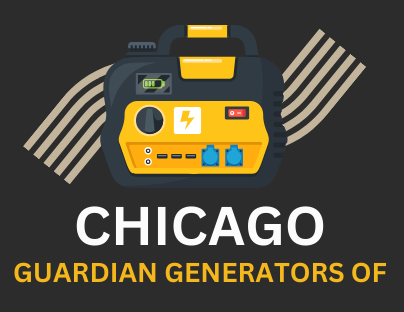Whole House Generators in Stickney IL
A whole house generator is a backup power system designed to provide electricity to an entire home during a power outage. Unlike portable generators that only power specific appliances, whole house generators are permanently installed and can automatically supply power to all the electrical systems in your home, including heating, cooling, and appliances.
Importance of Having a Whole House Generator
Power outages can occur due to severe weather, natural disasters, or even technical failures. A whole house generator ensures that your home remains powered during these interruptions. This is crucial for maintaining comfort, especially in extreme temperatures, and for preserving food in your refrigerator or freezer. It also helps in keeping critical systems like medical equipment operational.
Types of Whole House Generators
There are primarily two types of whole house generators:
- Standby Generators: These are permanently installed outside your home and are connected to your home’s electrical system. They start automatically when the power goes out and run on either natural gas or propane.
- Portable Generators: These are smaller and can be moved around. While they need to be manually started and connected to the home’s power system, they offer flexibility in their placement and can be used for various purposes beyond just whole-house power.

Key Considerations When Choosing a Whole House Generator
When selecting a whole house generator, consider the following factors:
- Power Requirements: Calculate the total wattage needed to power your home. This includes essential appliances, heating or cooling systems, and any other electrical needs.
- Fuel Type: Decide between natural gas, propane, or diesel, based on availability and cost in your area.
- Installation Location: The generator should be placed in a well-ventilated, accessible area to avoid potential hazards and ensure efficient operation.
- Noise Levels: Consider how much noise the generator will make and whether it will be acceptable for your household and neighborhood.
Installation Process
The installation of a whole house generator involves several steps:
- Site Assessment: A professional will assess your property to determine the best location for the generator, ensuring it is safely placed and complies with local regulations.
- Electrical Connections: The generator will be connected to your home’s electrical system. This includes installing a transfer switch that automatically switches power from the grid to the generator during an outage.
- Fuel System Setup: The chosen fuel source will be connected and tested to ensure a steady supply during an outage.
- Testing: Once installed, the generator will be tested to confirm it operates correctly and efficiently.
Maintenance Tips for Longevity
To ensure your whole house generator operates smoothly and lasts for many years, follow these maintenance tips:
- Regular Inspections: Schedule annual inspections with a professional to check for any wear and tear or potential issues.
- Exercise the Generator: Run the generator regularly, even if there is no outage, to keep the engine in good working condition.
- Change Filters and Fluids: Regularly change the oil, air filter, and fuel filter according to the manufacturer’s recommendations.
- Clean the Generator: Keep the generator clean and free of debris to prevent overheating and ensure proper ventilation.
Cost Considerations
The cost of a whole house generator varies based on several factors, including:
- Size and Capacity: Larger generators that can power more appliances will generally cost more.
- Fuel Type: The cost of natural gas, propane, or diesel can affect the overall expense.
- Installation: Professional installation costs can vary depending on the complexity of the setup and any additional work required.
- Maintenance: Regular maintenance and potential repairs should be factored into the overall cost of ownership.
Safety Precautions
When using a whole house generator, follow these safety precautions:
- Proper Installation: Ensure the generator is installed by a licensed professional to avoid safety hazards and comply with local codes.
- Ventilation: Install the generator in a well-ventilated area to prevent carbon monoxide buildup.
- Regular Maintenance: Perform regular maintenance to prevent malfunctions and ensure the generator is always ready when needed.
- Avoid Overloading: Do not exceed the generator’s capacity to prevent damage and ensure reliable operation.
What We Offer
We provide comprehensive
whole house generator in Stickney, IL. Our services include:
- Residential Generators
- Commercial Generators
- Portable Generators
- Electric Generators
- Propane Generators
- Solar Generators
- Generator Repairs
- Generator Maintenance
- Generator Parts
Ready to ensure your home is always powered? Contact us today to learn more about our whole house generator services in Stickney, IL. Our team is here to answer your questions, provide expert advice, and help you find the perfect generator solution for your home. Call us or fill out our online contact form to get started.
